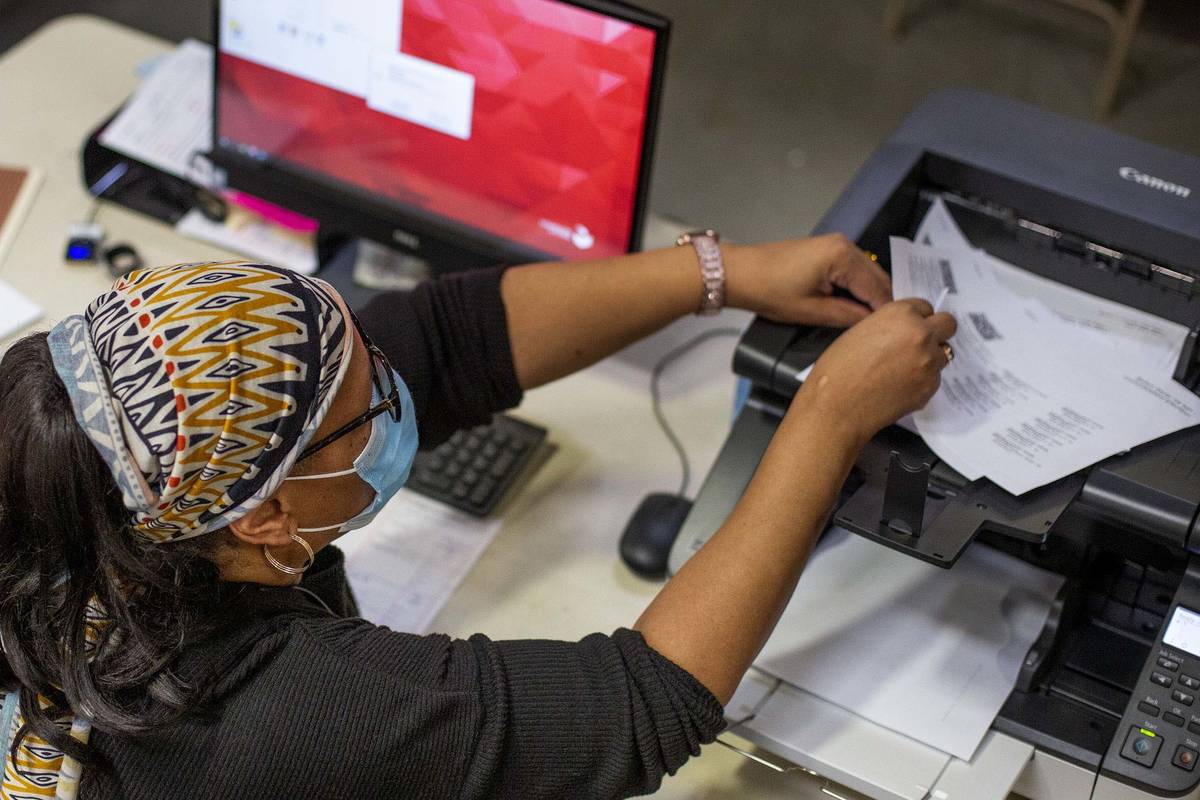Nevada mail-in voting a step closer to becoming permanent
CARSON CITY — Mail-in voting for Nevadans, instituted on an emergency basis last year amid fears of a spreading pandemic, took a step closer toward permanent status Thursday with a legislative committee’s party-line vote that sends the measure on to the full Assembly.
On the same party-line vote, majority Democrats on the Assembly Legislative Operations and Elections Committee also set up Nevada to leapfrog the states of Iowa and New Hampshire to hold the first–in-the-nation presidential nominating contest in 2024, at the same time dropping the state’s current presidential caucuses in favor of state-run party primary elections.
“Nevada has consistently punched above our weight when it comes to elevating the issues that we experience every day to national importance,” said Assembly Speaker Jason Frierson, D-Las Vegas and lead sponsor of Assembly Bill 126. “Our voices are diverse and better reflect the rest of the country than the current nominating structure, and it’s time for Nevada to take its rightful place, not just first in the West but first in the nation.”
Most significantly, Assembly Bill 321, the election reform bill also sponsored by the Assembly speaker, would give all Nevada voters the option to vote by mail in all elections and make permanent other changes enacted last year to ease voting restrictions and avoid long lines of voters waiting to cast ballots late into the night on Election Day.
Voters could still opt to vote early and on Election Day in person. The bill would also better train elections officers and set minimum number of polling locations and ballot drop boxes.
The election reform bill moves to the Assembly floor following the committee’s 7-4 vote, where it is likely to pass on the strength of the Democrats’ 26-16 majority.
The same 7-4 margin pushed the presidential primary bill ahead over concerns raised by Republicans regarding the $5.2 million projected cost to the state of running the primary. The current caucus system is paid for and run by the major political parties.
Party primaries would be open to all registered party members, not just caucus delegates, which advocates say makes them more inclusive and representative.
Committee Republicans also questioned whether Nevada’s move to hold the first-in-the-nation primary, which would occur on the first Tuesday in February in presidential election years, would run afoul of the Republican and Democratic national committees’ rules for the presidential nominating calendar, or set up conflicts with Iowa and New Hampshire. The latter state has written into its state law that its primary, currently held the second Tuesday in March, must be changed if necessary to take place before all others.
Frierson said the state would work with both national parties “to not violate rules” if the bill passes, and acknowledged the concerns about cost, but added: “I think that democracy costs money and it’s well worth it.”
Friday is the deadline for bills to be passed out of the committee to which they were originally referred. Bills that fail to pass are considered dead for the rest of the session.
Contact Capital Bureau reporter Bill Dentzer at bdentzer@reviewjournal.com. Follow @DentzerNews on Twitter.














